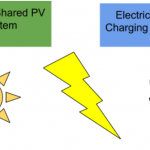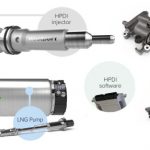Newsweek Special Report
"Experts generally agree that our current reliance on fossil fuels is unsustainable. Already oil is near $50 per barrel, and the great millions of Chinese and Indians destined to take to the road in the next decades have not yet gotten behind the wheel." This week Newsweek has written several special reports about alternative energy in all its forms. All of these reports can be found at the following link.
Plug-in Vehicles, Unconscionable Waste and Pollution Masquerading as Conservation
John Petersen For eighteen months I've been blogging about the energy storage sector and discussing the current and potential markets for batteries and other manufactured energy storage devices. A recurring theme that I've discussed many times is the unrecognized but undeniable truth that while plug-in vehicles masquerade as conservation measures at an individual level, they're incredibly wasteful at a societal level. The conclusion is counter-intuitive and my articles on the subject invariably draw heated criticism from self-anointed defenders of the faith. Their arguments, however, do not change the inescapable truth that plug-in vehicles are one of the most...
Gas Price Demand Elasticity
Here is an interesting article on the Carbon Tax Blog about dropping gas usage in the US due to sustained high prices. As I've said before, now that peaking oil supply has made gasoline supply inelastic, price will have to be set by marginal demand... we're beginning to get a look at what the demand elasticity for gasoline is. But gas prices are not dropping. US demand may actually be elastic, but world demand is not yet showing elasticity. In large part, this is because most emerging economies and oil producing company consumers enjoy fixed price oil, courtesy of...
Energy Storage: Q-2 2012 Review and Analysis
John Petersen While I jumped the gun last week and published my third quarter outlook for the energy storage and vehicle electrification sectors early, it's worthwhile to take a look back and see how my tracking list of companies performed over the last quarter and examine the past to see what the tea leaves in the bottom of the cup portend for the coming quarter. So without further delay I'll present my price performance table for the second quarter that ended on Friday. Q-2 was a dreadful quarter for Maxwell Technologies (MXWL) and ZBB Energy...
When Airlines Run Out of Fuel
Green Energy Investing For Experts, Part IV Tom Konrad, CFA Mass air travel is incompatible with a sustainable economy. Air travel is energy and capital intensive, creates a gigantic carbon footprint, and is likely to remain dependant on the high energy density of fossil fuels much longer than surface transport. As such, it is a prime candidate for the short side of a clean energy portfolio. I'm writing this post on a United Airlines (UAUA) flight from Baltimore to Denver in a seat that cost me $99, plus $15 to check a bag. One sign of the economic...
Car Insurers Can Help Community Solar Find EV Customers
By Joe McCabe, P.E.
The insurance industry has lots of exposure to climate change. But as Warren Buffet has explained, not so much for companies that do annual policy adjustments, like Berkshire Hathaway. Their exposure is limited because the trends are baked into the premiums. But there is an opportunity for reducing insurance risk due to climate change, and it comes from the insurance industry itself. The business model is to have car insurance salespeople provide leads to virtual electric car charging services. This has perfect demographics because electric vehicle owners are very receptive to solar electricity. Who wouldn't want...
Hydrogen Fuel Is Not Dead
John Lounsbury With the furor over the potential for hybrid, plug-in hybrid and all-electric cars recently, one might think the hydrogen car was dead. Nothing could be further from the truth. Feasibility at an affordable price appears to be established and market availability of hydrogen powered cars may come sooner than you think. Many issues remain to be addressed and this article will try to cover them. The problems to be overcome are not insurmountable, but are also not trivial. These problems include the economics of hydrogen production, transportation, distribution and...
Westport Fuels Natural Gas Conversion
Earlier this week Westport Fuel (WPRT: Nasdaq) reported financial results for the quarter ending September 2018. Based on British Columbia, Westport is a developer and manufacturer of clean fuel systems for both fossil and renewable fuel sources. It has taken some years, but Westport management has worked hard and overcome a number of obstacles to bring a mix of engines and systems capable of handling various fuels such as natural gas, hydrogen and liquid petroleum gas.
Revenue jumped to $65.5 million in the September 2018, quarter delivering $4.3 million in cash earnings. The company’s relationship with truck engine manufacturer Cummins (CMI: NYSE) is proving to be...
Why Long Range EVs Can Never Be Cost Effective
by John Petersen America’s love affair with the automobile has always been based on the freedom of the road and the ability to hop in the car and drive wherever we want to go; be it to the corner store to buy a loaf of bread or out to the lake for a long weekend. Even though most of our trips are short, people invariably want the flexibility to go for a long drive when the open road beckons. Unfortunately, that mentality is disastrous when it comes to EV economics. I’ve been writing about energy...
Portec Rail Products Beats Estimates, Gets Clobbered
Portec Rail Products (PRPX) released fourth quarter results on Thursday, comfortably beating analyst expectations. The stock promptly dropped 18% to just below $5, continuing a two-week decline from around $7.50. I'm baffled. Although the rail freight industry is a victim of falling oil prices (which means they lose market share to trucking) and the overall drop-off of the transportation industry, this is not news. Portec has several things going for it. The company has a strong balance sheet, with current assets exceeding total liabilities, and strong cash flow from operations. Total revenue is down slightly from last...
Shipping Panic Creates Preferred Arbitrage Opportunity
Tom Konrad, Ph.D., CFA Seaspan Worldwide has several classes of publicly traded securities, with different claims on its income streams. The company owns container ships leased under long term contracts to shipping companies. The shipping industry is in a massive downturn, raising concerns about its customers' ability to pay. The company's preferred shares have sold off more than half as far as its common stock- far more than justified by its relatively low risk. There exists a 5.5% yield opportunity to buy the preferred and hedge the risk by buying puts on the...
PHEVs and EVs; Plugging Into a Lump of Coal
John Petersen Since I've stirred up a hornet's nest over the last two weeks first by debunking the mythology that PHEVs and EVs will save their owners money and then by showing how PHEVs and EVs will sabotage America's drive for energy independence, I figured I might as well go for the triple-crown of harsh realities by showing readers that in the U.S., where 70% of electricity comes from burning hydrocarbons, PHEVs and EVs won't make a dent in CO2 emissions. They'll just take distributed CO2 emissions off the roads and centralize them in coal and gas...
Stop-Start Realities and EV Fantasies
John Petersen Last week Johnson Controls (JCI) released the results of a nationwide survey that found that 97 percent of Americans are ready for micro-hybrids with stop-start idle elimination, the most sensible automotive innovation in years. A micro-hybrid turns the engine off to save fuel and eliminate exhaust emissions when it's stopped in traffic and automatically restarts the engine when necessary. While the overwhelmingly positive consumer response didn't surprise me, JCI's short-term growth forecast for micro-hybrids did. I've been writing about the rapidly evolving micro-hybrid space since 2008 and during that time the market penetration forecasts have...
Aggressive New CAFE Standards; The IC Empire Strikes Back
John Petersen Last Friday President Obama and executives from thirteen leading automakers gathered in Washington DC to announce an historic agreement to increase fleet-wide fuel economy standards for new cars and light trucks from 27.5 mpg for the 2011 model year to 54.5 mpg for the 2025 model year. While politicians frequently spin superlatives to describe mediocre results, I believe the President's claim that the accord "represents the single most important step we've ever taken as a nation to reduce our dependence on foreign oil" is a refreshing example of political understatement. After three decades of demagoguery, debate,...
The Time is Right for Gas-guzzler to Dual-mode EV Conversions
Since early 2008, Axion Power International (AXPW.OB) has been quietly developing an experience base and building grass roots support for a gas-guzzler to dual-mode EV conversion initiative that has the short-term potential to transform up to 120 million gas-guzzling pickup trucks, sport utility vehicles and vans into gas sipping EV-50s. If recent articles from sources as diverse as The Daily Green, Edmunds Green Car Advisor and the Environmental Defense Fund are reliable indicators, the initiative is rapidly gaining ground. The concept is simple – add electric power trains and battery packs to America's least fuel-efficient vehicles and give...
Western Lithium to Profit from Electric Car Stimulus
Jason HamlinThe lithium market is buzzing as GM, Nissan and other car manufacturers get set to roll out a new series of electric cars that will greatly increase demand for the obscure silver-white alkai metal. GM has announced plans to construct a $43 million plant in Michigan to build lithium-ion batteries for its Chevrolet Volt electric-powered car, which captured headlines with its claim of 230 miles per gallon. Adding to the lithium mania is Washington’s support in the form of $2 Billion in stimulus funding: “New plug-in hybrids roll off our assembly lines, but they will run...




